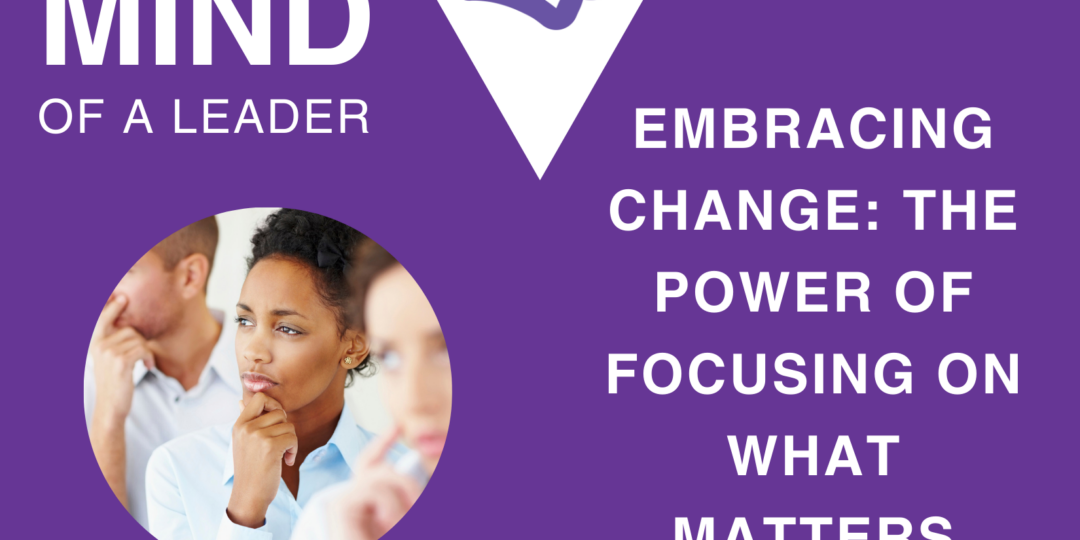Finding Your Voice: the Unfiltered Power of Leadership Communication
- Nov 05, 2024
- By personifyadmin
- In Newsletters
- 0 Comments
True leadership starts with the courage to communicate openly, with clarity and conviction. But great leaders don’t just speak—they listen, adapt, and make sure their words truly connect. In our Voice of a Leader module, we don’t hold back. We dive deep into what it means to communicate effectively, because your voice shapes your team’s trust, alignment, and ultimately, your success. This is about finding your voice—authentic, unfiltered, and purposeful—and using it to build a culture where everyone feels heard, respected, and inspired to do their best work.
The Voice module within the Personify Leadership program focuses on developing leaders’ communication skills to inspire trust, clarity, and connection within their teams. This module emphasizes the importance of clear messaging and effective listening to ensure that leaders can convey their vision, expectations, and feedback with impact.
At its core, the module teaches leaders to understand and apply the sender-receiver communication model. Leaders learn to tailor their communication style to match the preferences of their audience, especially when interacting with diverse team members. A key tool used in this module is the DiSC assessment, which helps leaders recognize their natural communication styles and adapt accordingly. Through this approach, leaders gain insights into how their words, tone, and body language impact others, enhancing both understanding and rapport within the team.
By the end of this module, leaders are equipped to communicate purposefully and responsively, fostering an environment where team members feel heard, valued, and aligned with organizational goals. The Voice of a Leader is not just about speaking—it’s about listening, adapting, and building a culture of open and effective communication.
Our Personify Leadership course teaches skills in this area, where we focus on being a leader who communicates a message that resonates with those who receive it. Let me know if you are interested in learning more about this; we’d love to talk with you! Our next Open Enrollment class is December 10-11.
Questions to ask yourself:
- Do you adapt your communication style to diverse team personalities?
- How does communicating in a way that resonates with your receiver help build rapport with your team?
- How does understanding the DiSC communication model empower leaders to build stronger relationships with their team members?
If you are interested in building more skills in this area, consider registering for our next Open Enrollment course.
Embracing Change: The Power of Focusing on What Matters
- Oct 08, 2024
- By personifyadmin
- In Newsletters
- 0 Comments
Whether it’s a change in season, our homes, or our teams, most of us are fascinated by makeovers. I know I spend way too much time watching the HGTV channel myself. From magazines to trainings to television shows, we all drink in reinventions of almost every conceivable thing: rooms, closets, cars, bodies, even relationships. Why? Because aside from a little silliness here and there, makeovers are particularly instructive. They offer a window into the process of transformation, the whys, the hows, and the actions that bring it about. Wanting to do something better… it is an outer expression of an inner desire.
On the one hand, change can be fun and anticipatory. As mentioned above, reinventing or refreshing a space can be creative and invigorating, and the change of seasons to Fall welcomes cooler temperatures and the beauty of the changing leaves. On the other hand, change can be really hard. Especially if the change is not something you wanted or anticipated, like the people devastated by Hurricane Helene, the passing of a loved one, or a relationship ending badly. There are also many massive changes going on in the world right now, such as our impending election and unpredictable war-torn areas of the globe.
When we experience changes outside our control, like those mentioned earlier, it’s easy to feel overwhelmed. But this is where understanding an “Internal Locus of Control” can make a difference. By focusing on the things we can control, we shift our perspective from helplessness to empowerment. Sure, we may not be able to control natural disasters or global conflicts, but we can influence our personal reactions and decisions. This mindset helps keep us grounded amidst uncertainty, allowing us to take small, intentional steps that make a big impact in our immediate environment. Whether it’s creating a more positive atmosphere at work, maintaining our physical well-being, or simply offering a kind word to someone struggling, these are all areas where our actions matter. Rather than getting swept away by the forces we can’t influence, staying anchored in the things we can directly manage helps us remain resilient and proactive in the face of change.
Our Personify Leadership course teaches skills in this area, specifically in the Mind of a Leader module, where we focus on emotional resiliency. Let me know if you are interested in learning more about this; we’d love to talk with you! Register for our next Open Enrollment class.
Questions to ask yourself:
- Q1: How can practicing an internal locus of control help leaders maintain resilience during organizational changes?
- Q2: What small, daily actions can help reinforce a focus on things within your control, even when larger situations seem overwhelming?
- Q3: How can teams be encouraged to focus on the elements they control during high-stress periods at work?
What would you add to this list?
If you are interested in building more skills in this area, consider registering for our next Open Enrollment course.
Tag: Voice of a Leader
© 2012-2025 Personify Leadership. All Rights Reserved.



Recent Comments